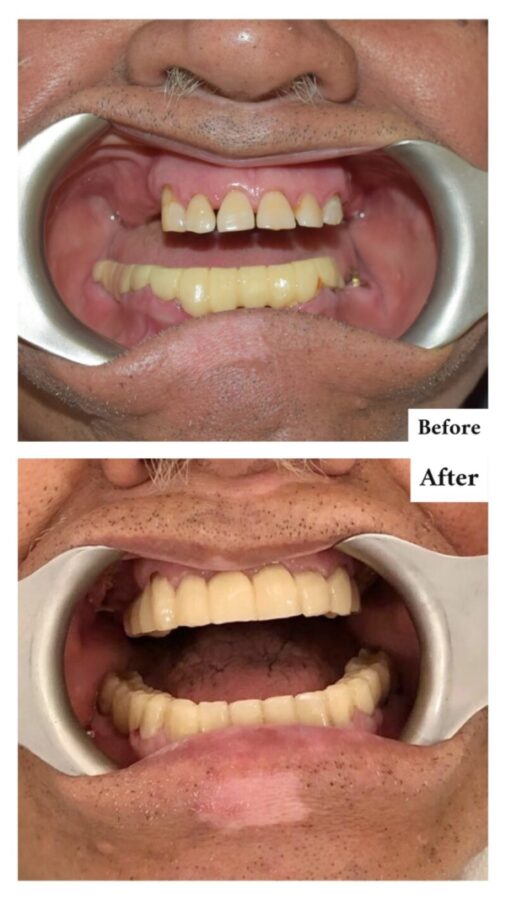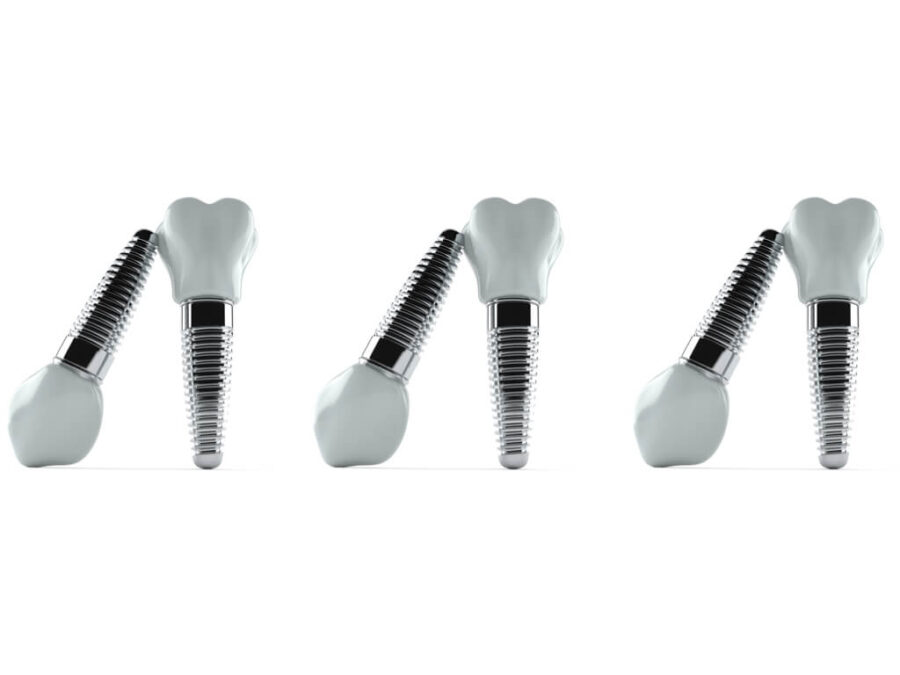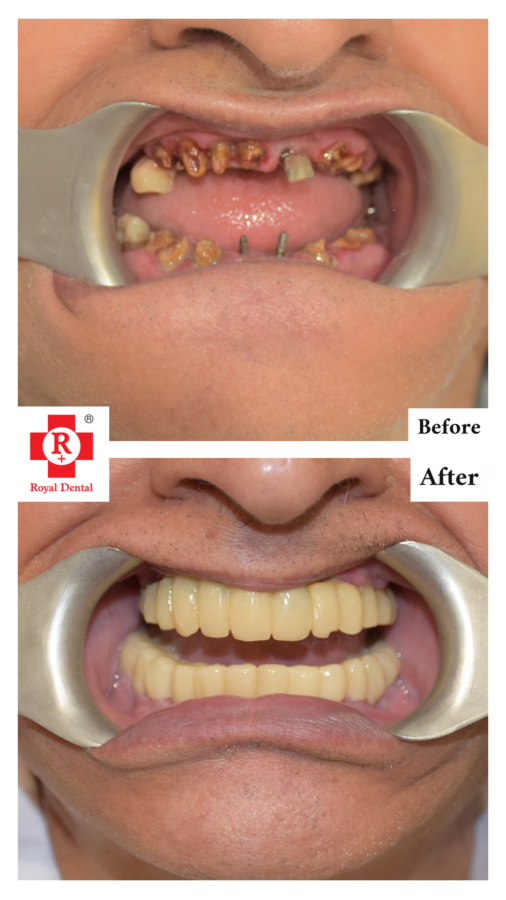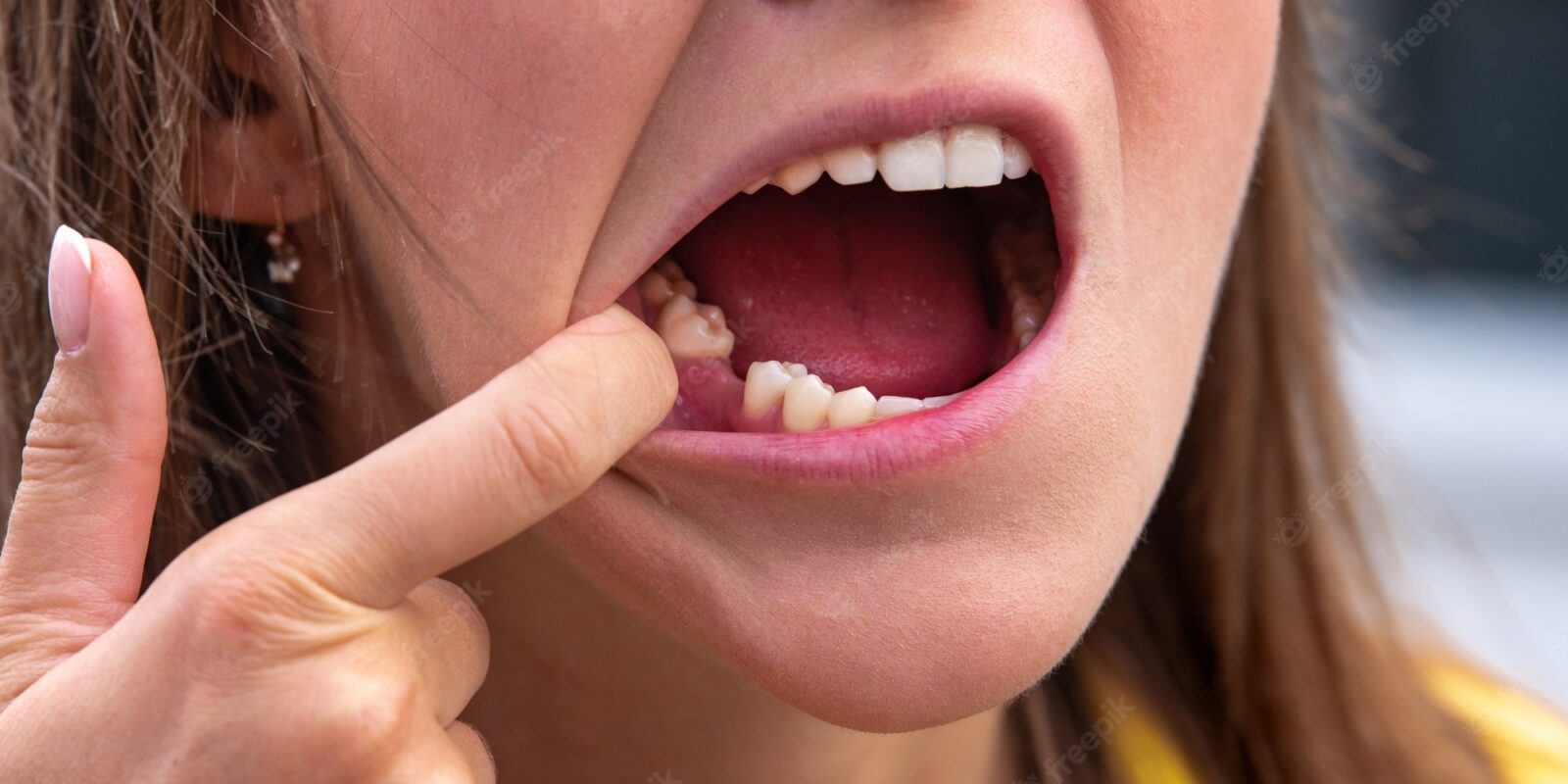When it comes to dental trauma, missing teeth can be one of the most significant and lasting effects. For years, dentures and bridges have been the go-to solution for those missing teeth, but they’re not without their drawbacks. Fortunately, dental technology has advanced significantly over the past few decades, and there is now a better solution: dental implants. Any tooth can be affected by dental trauma, but the front teeth are the most commonly affected. This is because they are more exposed and vulnerable to injury due to their location in the mouth. The upper front teeth are particularly susceptible to trauma because they protrude outward and are more likely to come into contact with external objects. The lower front teeth are also at risk, especially in contact sports or accidents involving the lower jaw.
In addition to the front teeth, the premolars and molars can also be affected by dental trauma. These teeth can be chipped, cracked, or knocked out due to accidents or injuries. Children and teenagers are more susceptible to dental trauma due to their active lifestyles and participation in sports. However, adults can also experience dental trauma due to accidents, falls, and other injuries. If you experience dental trauma, it is important to seek immediate dental care to prevent further damage to the tooth and surrounding tissues. Your dentist can assess the extent of the injury and recommend the appropriate treatment, which may include restorative procedures such as fillings, crowns, or implants.
Understanding the Importance of Replacing Missing Teeth
Improved Oral Health: Missing teeth can lead to a number of oral health problems, including gum disease, tooth decay, and bone loss. By replacing missing teeth, you can maintain better oral health and avoid these issues.
Enhanced Functionality: Missing teeth can make it difficult to speak, eat, and perform other everyday activities. Replacing missing teeth with dental implants or dentures can improve your ability to perform these activities and restore your confidence.
Improved Appearance: Missing teeth can have a negative impact on your appearance, affecting your smile and overall facial structure. Replacing missing teeth with dental implants or dentures can help you look and feel better.
Preservation of Adjacent Teeth: When a tooth is missing, adjacent teeth can shift and move, which can lead to additional dental problems. By replacing missing teeth, you can help preserve the alignment of your remaining teeth and avoid future dental issues.
Long-Term Cost Savings: While the initial cost of replacing missing teeth can be significant, it can actually save you money in the long run. By preventing dental problems and preserving your oral health, you can avoid costly dental procedures down the line.
Advantages of Dental Implants over other Solutions
Better Durability: Dental implants are made of high-quality materials, such as titanium, that are durable and long-lasting. With proper care, dental implants can last a lifetime.
Improved Comfort: Dental implants are designed to fuse with your jawbone, which makes them feel like natural teeth. This means that they are more comfortable than other solutions, such as dentures, which can be bulky and uncomfortable.
Enhanced Functionality: Dental implants function like natural teeth, which means that you can eat, speak, and perform other activities without any restrictions. This can improve your overall quality of life.

Better Aesthetics: Dental implants look like natural teeth, which means that they blend in seamlessly with your existing teeth. This can improve your smile and boost your confidence.
Bone Preservation: When a tooth is missing, the bone in the jaw can start to deteriorate. Dental implants help to preserve the bone in the jaw by stimulating new bone growth.
Easy Maintenance: Dental implants are easy to maintain, requiring the same care as natural teeth, such as regular brushing and flossing.
Dental Implant Procedure – What to expect after trauma?
The dental implant procedure typically involves several steps, which may vary depending on your individual needs. Here is a general overview of what to expect:
Initial Consultation: Your dentist will examine your teeth, gums, and jawbone, and discuss your treatment options. This may include X-rays or a CT scan to evaluate the condition of your jawbone and determine the best placement for the implant.
Implant Placement: In the next stage, the implant is surgically placed into the jawbone. This procedure is usually performed under local anesthesia, and sedation may be provided for patients who are anxious or nervous.
Osseointegration: After the implant is placed, the jawbone will begin to fuse with the implant in a process called osseointegration. This process can take several weeks to several months, depending on the individual patient.
For more details read on…
Abutment Placement: Once the implant has fully integrated with the jawbone, a small connector called an abutment is attached to the implant. This serves as a foundation for the replacement tooth or teeth.
Tooth Replacement: In the final stage, the replacement tooth or teeth are attached to the abutment. These can be individual crowns, bridges, or dentures, depending on your specific needs.
Throughout the process, your dentist will provide instructions for post-operative care, including proper oral hygiene practices and dietary restrictions to ensure a successful recovery. Regular check-ups and cleanings will also be necessary to maintain the health and longevity of your dental implant.
Different types of Dental Implants after Trauma
Endosteal Implants: These are the most common type of dental implant and are placed directly into the jawbone. They are typically made of titanium and are shaped like small screws or cylinders.
Subperiosteal Implants: These implants are placed under the gum tissue but above the jawbone. They are less common than endosteal implants and are typically used for patients who do not have enough healthy jawbone to support endosteal implants.
Zygomatic Implants: These implants are used for patients who have severe bone loss in the upper jaw. They are anchored to the cheekbone (zygomatic bone) instead of the jawbone.



Mini Implants: These are smaller than traditional implants and are often used for patients with smaller teeth or limited jawbone density. They can be placed with less invasive surgery and may be a good option for patients who are not candidates for traditional implants.
All-on-4 Implants: This is a type of implant that is used to support a full arch of replacement teeth using only four implants. This technique can be a more cost-effective and time-efficient alternative to placing multiple individual implants.
Immediate load implants: These implants are also called “same-day implants” or “teeth in a day.” They are placed and restored with a temporary crown or bridge on the same day as the implant surgery. Immediate load implants are suitable for patients who have enough bone density and do not need additional bone grafting.
Dental Implants vs. Dentures vs Bridges
Dentures and bridges have been the go-to solution for missing teeth for many years. However, they’re not without their drawbacks. Dentures can be uncomfortable and difficult to keep in place, while bridges require the removal of healthy tooth structure to anchor the bridge in place. Additionally, both dentures and bridges need to be replaced periodically, which can be costly and inconvenient.
Tooth implants, on the other hand, are a permanent solution that looks and feels like your natural teeth. They don’t require any special care beyond regular brushing and flossing, and they won’t slip or shift around in your mouth. Additionally, dental implants can help prevent bone loss and gum recession, which can help you avoid further dental problems down the road.
Investing in Implants after Dental trauma?
The cost of dental implants can vary depending on several factors, including the number of teeth you’re missing, the type of implant you need, and your location. However, dental implants are generally more expensive than traditional solutions like dentures and bridges. While the upfront cost of dental implants may be higher, it’s essential to consider the long-term benefits. Dental implants are a permanent solution that can last a lifetime with proper care, while dentures and bridges need to be replaced periodically. Additionally, dental implants can help prevent further dental problems down the road, which can save you money on future dental treatments.
Caring for Implants – Maintenance after Dental trauma
Caring for your dental implants is relatively straightforward. You’ll need to brush and floss regularly, just like you would with your natural teeth. Additionally, it’s essential to schedule regular check-ups with your dentist to ensure that your dental implant is healthy and functioning correctly. With proper care and maintenance, dental implants can last a lifetime, making them an excellent investment in your oral health and overall well-being.
Who is ideal candidate for Implants after trauma?
Most people with missing teeth are good candidates for dental implants. However, there are a few factors to consider. First, you’ll need to have enough healthy jawbone to support the implant. If you don’t, you may need to undergo a bone grafting procedure to build up your jawbone. Additionally, if you have certain medical conditions like diabetes or heart disease, you may not be a good candidate for dental implants. Your dentist will evaluate your oral health and medical history to determine if dental implants are right for you.
Implanting Taste of Life in One Day | Royal Dental Clinics | One Day Implant Dentist
These success stories demonstrate how tooth implants can transform a person’s life, improving their appearance, confidence, and overall quality of life. The team at Royal Dental Clinic is dedicated to providing their patients with the highest quality dental care and helping them achieve their goals for a healthy, beautiful smile.
Conclusion
Implants are a life-changing solution for missing teeth due to trauma. They offer many benefits over traditional solutions like dentures and bridges, including improved comfort and functionality, a more natural appearance, and increased durability. While the upfront cost of dental implants may be higher than traditional solutions, they’re an excellent long-term investment in your oral health and overall well-being. If you’re missing one or more teeth due to trauma, dental implants may be the ultimate solution you’ve been looking for.






